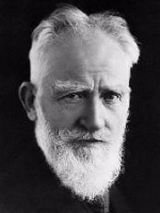"While some of Shaw’s earlier plays are still performed, his later plays, such as the ones in this volume, are barely known. As the collective title indicates, the themes here are political; yet, frankly, it is doubtful how seriously we can now take Shaw as a political thinker. Despite writing in the 1930s, he has little to say of the nature of totalitarianism: although he satirises Fascist dictators in “Geneva”, the satire is disappointingly mild. Neither did Shaw appear to foresee (on the evidence of these plays, at least) the imminent collapse of the British Empire.But it is Shaw the dramatist rather than Shaw the political philosopher who still holds our attention – even in plays as explicitly political as these. He had a sharp intellect and a quirky sense of humour, and his dialogue still glints and sparkles: he couldn’t write a dull line if he tried. No matter how serious the themes he addresses, the crispness of his writing and his lightness of touch still scintillate.Shaw seems, perhaps unfairly, out of fashion nowadays. But even in these lesser-known works, he demonstrates his matchless ability, still undimmed, to provoke and to entertain."

George Bernard Shaw (Συγγραφέας)
Shaw, George Bernard (1856 - 1950). Γεννήθηκε στο Δουβλίνο της Ιρλανδίας και πέθανε στην Αγγλική πρωτεύουσα, σε ηλικία 94 ετών. Το 1925 τιμήθηκε με το βραβείο Νόμπελ της λογοτεχνίας. Κατά τα 50 και πλέον χρόνια της συγγραφικής δραστηριότητάς του έγραψε γύρω στα 50 θεατρικά έργα, τα πιο γνωστά από τα οποία είναι τα εξής: "Το επάγγελμα της κυρίας Γουώρρεν", "Πυγμαλίων", "Καίσαρ και Κλεοπάτρα", "Ο μαθητής του διαβόλου", "Φάννυ", "Άνθρωπος και υπεράνθρωπος", "Οι έξι του Καλαί", "Τα σπίτια των χήρων", "Πίσω στο Μαθουσάλα", "Αικατερίνη η Μεγάλη", "Στις χρυσές μέρες του βασιλιά Καρόλου", "Τα όπλα και οι άνθρωποι" κ.ά.
Δείτε όλα τα βιβλία του συγγραφέα
